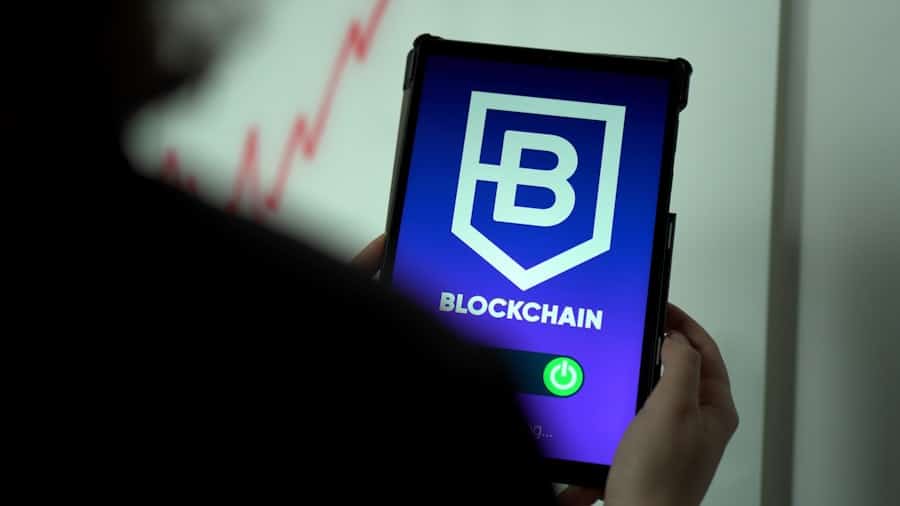In recent years, the landscape of social media has undergone significant scrutiny, prompting a shift towards decentralized platforms. Unlike traditional social media networks, which are typically governed by centralized entities, decentralized social media platforms operate on a distributed network model. This means that no single organization has control over the data or the platform itself, allowing users to engage in a more democratic and transparent manner.
The rise of decentralized social media is not merely a trend; it represents a fundamental change in how individuals interact online, share information, and build communities. Decentralized social media platforms aim to empower users by giving them ownership of their data and the ability to control their online presence. This shift is particularly relevant in an era where concerns about privacy, censorship, and data exploitation have reached unprecedented levels.
By leveraging technologies such as blockchain, these platforms offer an alternative to the status quo, where user-generated content is often monetized without fair compensation to the creators. As we delve deeper into this topic, it becomes essential to understand both the current state of centralized platforms and the potential benefits and challenges posed by their decentralized counterparts.
Key Takeaways
- Decentralized social media platforms are gaining popularity as an alternative to centralized platforms, offering users more control over their data and content.
- Centralized social media platforms have been criticized for their data privacy issues, algorithmic biases, and lack of transparency in content moderation.
- Decentralized social media platforms offer advantages such as increased data privacy, censorship resistance, and user ownership of content and data.
- Challenges and concerns of decentralized social media platforms include scalability, user adoption, and potential for misuse such as spreading misinformation and illegal content.
- Blockchain technology plays a key role in decentralized social media platforms by providing transparent and secure data storage, content verification, and tokenized incentives for users.
The Current State of Centralized Social Media Platforms
Centralized social media platforms like Facebook, Twitter, and Instagram dominate the digital landscape, boasting billions of active users worldwide. These platforms operate under a business model that primarily relies on advertising revenue, which is generated by collecting vast amounts of user data. This data is then analyzed to create targeted advertisements, often leading to concerns about privacy violations and the commodification of personal information.
Users frequently find themselves in a paradoxical situation: while they enjoy free access to these platforms, they pay for this service with their data. Moreover, centralized platforms are often criticized for their lack of transparency and accountability. Decisions regarding content moderation, algorithm changes, and user bans are typically made behind closed doors, leaving users with little recourse or understanding of how these processes work.
High-profile incidents of misinformation, hate speech, and data breaches have further eroded trust in these platforms. The algorithms that govern what users see can create echo chambers, reinforcing existing beliefs and limiting exposure to diverse perspectives. As a result, many users are beginning to seek alternatives that prioritize user autonomy and foster healthier online interactions.
Advantages of Decentralized Social Media Platforms

Decentralized social media platforms offer several compelling advantages over their centralized counterparts. One of the most significant benefits is user ownership of data. In a decentralized model, users retain control over their personal information and can choose how it is shared or monetized.
This empowerment fosters a sense of agency among users, allowing them to engage with the platform on their terms. For instance, platforms like Mastodon enable users to create their own instances or communities, tailoring their experience to fit their preferences while maintaining control over their data. Another advantage is the potential for enhanced privacy and security.
Decentralized platforms often employ encryption and other security measures that protect user data from unauthorized access.
Additionally, the transparency inherent in many decentralized systems can help build trust among users, as they can verify how their data is being used and ensure that it is not being exploited for profit without their consent.
Challenges and Concerns of Decentralized Social Media Platforms
Despite their advantages, decentralized social media platforms face several challenges that could hinder their widespread adoption. One major concern is the issue of scalability. As these platforms grow, maintaining performance and ensuring that all nodes in the network can handle increased traffic becomes increasingly complex.
For example, while platforms like Diaspora have made strides in creating decentralized networks, they often struggle with user experience issues as they scale up. Another challenge lies in governance and moderation. In a decentralized environment, establishing clear guidelines for content moderation can be difficult.
Without a central authority to enforce rules, there is a risk of harmful content proliferating unchecked. This can lead to environments where hate speech or misinformation thrives, undermining the very principles that decentralized platforms aim to uphold. Striking a balance between free expression and responsible moderation remains a critical challenge for these emerging networks.
The Role of Blockchain Technology in Decentralized Social Media Platforms
Blockchain technology plays a pivotal role in the functioning of many decentralized social media platforms. By utilizing a distributed ledger system, blockchain enables secure and transparent transactions without the need for intermediaries. This technology allows users to verify ownership of their data and ensures that any changes made to the network are recorded immutably.
For instance, platforms like Steemit reward content creators with cryptocurrency based on user engagement, creating an incentive structure that aligns with user interests. Moreover, blockchain can enhance trust among users by providing transparency in how content is curated and monetized. Smart contracts—self-executing contracts with the terms directly written into code—can automate various processes within decentralized social media platforms.
This could include everything from revenue sharing among content creators to automated moderation systems that adhere to community guidelines. By leveraging blockchain technology, decentralized platforms can create an ecosystem that prioritizes fairness and accountability.
The Potential Impact of Decentralized Social Media Platforms on Data Privacy and Security

The advent of decentralized social media platforms has profound implications for data privacy and security. In traditional centralized models, user data is often stored in large databases vulnerable to hacking and exploitation. In contrast, decentralized platforms distribute data across multiple nodes, significantly reducing the risk of large-scale breaches.
This architecture not only enhances security but also aligns with growing public demand for greater privacy protections. Furthermore, decentralized platforms can empower users to take control of their own privacy settings. Users can choose what information they share and with whom, fostering a more personalized experience while minimizing unwanted exposure.
For example, some decentralized networks allow users to create private groups or channels where they can communicate without fear of surveillance or data mining by third parties. This shift towards user-centric privacy could reshape societal norms around data sharing and consent.
The Future of Decentralized Social Media Platforms in a Connected World
As we look toward the future, decentralized social media platforms are poised to play an increasingly significant role in shaping online interactions. The growing awareness of privacy issues and the desire for more equitable digital spaces suggest that these platforms will attract more users seeking alternatives to traditional networks. Innovations in technology will likely continue to drive this trend forward; as blockchain becomes more scalable and user-friendly, we may see an influx of new decentralized applications that cater to diverse needs.
Moreover, as regulatory frameworks evolve in response to public concerns about data privacy and misinformation, decentralized platforms may find themselves better positioned to comply with emerging standards.
The potential for collaboration among decentralized networks could also lead to a more interconnected ecosystem where users can seamlessly transition between different platforms while retaining ownership of their data.
The Evolution of Social Media towards Decentralization
The evolution of social media towards decentralization represents a significant shift in how individuals interact online and manage their digital identities. As concerns about privacy violations and centralized control continue to mount, decentralized platforms offer a promising alternative that prioritizes user autonomy and security. While challenges remain in terms of scalability and governance, the potential benefits are substantial enough to warrant serious consideration from both users and developers alike.
In this rapidly changing digital landscape, it is clear that the future of social media will be shaped by ongoing innovations in technology and shifts in societal expectations regarding privacy and data ownership. As we move forward into this new era of online interaction, decentralized social media platforms may very well redefine what it means to connect in a connected world.
If you are interested in exploring the future of technology beyond decentralized social media platforms, you may want to check out this article on the best software for project management. This article provides insights into the top tools and platforms that can help streamline project management processes and improve team collaboration. It offers valuable information for individuals and businesses looking to enhance their project management capabilities in 2023.
FAQs
What are decentralized social media platforms?
Decentralized social media platforms are online networks that operate without a central authority or server. Instead, they use blockchain technology and peer-to-peer networks to give users more control over their data and content.
How do decentralized social media platforms differ from traditional social media platforms?
Traditional social media platforms are typically owned and operated by a central company, which controls the platform’s rules, algorithms, and user data. Decentralized social media platforms, on the other hand, are designed to give users more ownership and control over their data and content.
What are the benefits of decentralized social media platforms?
Decentralized social media platforms offer several potential benefits, including increased privacy and security, reduced censorship, and the ability for users to directly monetize their content. They also aim to reduce the power imbalance between users and platform owners.
What are some examples of decentralized social media platforms?
Examples of decentralized social media platforms include Steemit, Mastodon, and Diaspora. These platforms vary in their features and focus, but they all prioritize user control and data ownership.
What is the future of decentralized social media platforms?
The future of decentralized social media platforms is still uncertain, but many experts believe that they will continue to grow in popularity as concerns about data privacy and censorship on traditional platforms persist. However, challenges such as user adoption and scalability will need to be addressed for widespread adoption.

